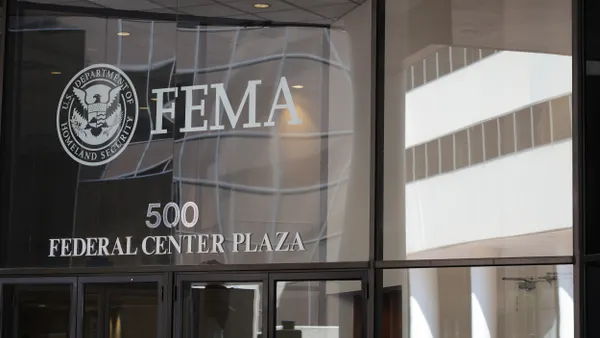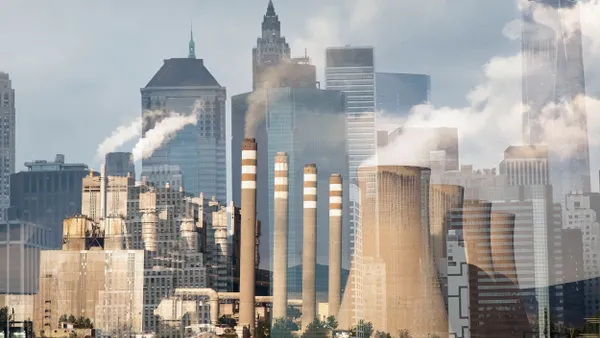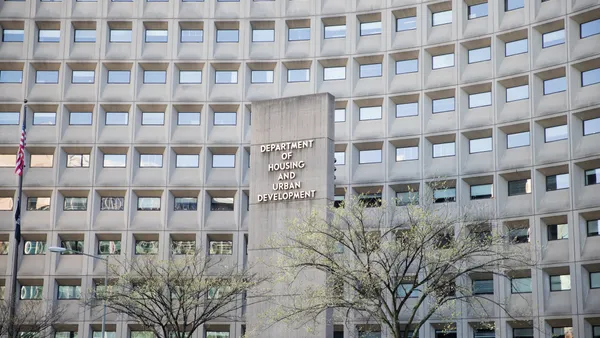Dive Brief:
- More than 50 mayors and a dozen state attorneys general have added their names to a statement condemning the Environmental Protection Agency's (EPA) stated intent to roll back vehicle emissions standards laid out in the Obama-era Clean Air Act.
- The statement notes that the elected officials will "vigorously resist any effort by the [Trump] Administration to prevent states from enforcing reasonable, commonsense emissions performance standards." It also states that all residents, not just those whose officials signed the manifesto, deserve fuel-efficient, low-emission vehicles to improve their health and save money on gas. (See full document at the bottom of this story.)
- Many other elected officials across the country have issued their own statements opposing the EPA's rollback, including Los Angeles Mayor Eric Garcetti and a joint statement from three governors and five mayors from West Coast states. California Attorney General Xavier Becerra also released a statement in which he committed to filing a lawsuit to protect the previous emissions standards, if necessary.
Dive Insight:
The emissions standards in question called for nearly doubling the average fuel efficiency of new vehicles sold in the U.S. by 2025, bringing the efficiency standards to 50 miles per gallon, in addition to tailpipe emissions standards. The dozens of mayors who signed the manifesto cited an EPA study that showed that auto manufacturers are "adopting fuel economy technologies at unprecedented rates and will be able to meet these standards primarily with conventional vehicles," and that the cost of compliance has been lower than anticipated.
"The Obama Administration's determination was wrong," EPA Administrator Scott Pruitt said in a statement. "Obama’s EPA cut the Midterm Evaluation process short with politically charged expediency, made assumptions about the standards that didn’t comport with reality, and set the standards too high."
The EPA's proposed changes to the Clean Air Act are viewed as the Trump Administration's war on California. Pruitt specifically called out that state in his announcement, saying that "Cooperative federalism doesn’t mean that one state can dictate standards for the rest of the country." That references the Clean Air Act's waiver for California to set stricter emissions standards than what is mandated by Washington, DC.
Although dozens, if not hundreds, of elected officials now have spoken out against the EPA's proposal, the joint statement from West Coast governors and mayors shows a particular solidarity with California.
Consumers have found renewed interest in electric vehicles (EVs) over the past few years and auto manufacturers have increasingly released new electric models and improved existing technology to keep up. States and cities also have been adding and incentivizing electric vehicle infrastructure to encourage more EV use. For example, Atlanta passed regulations requiring all new residential and commercial buildings to support EV chargers, Northeast states collaborated with automakers on a "drive electric" campaign and Salt Lake City removed fees for using municipal electric charging stations.
Some believe that these measures, along with the increased national discussions about the environment and climate change in recent years, have helped to push consumers toward cleaner vehicles. A number of the officials who oppose the EPA's proposed changes have recognized that rolling back emissions standards not only impacts the environment, but also could affect the economy by stunting clean car technology and related innovations.










